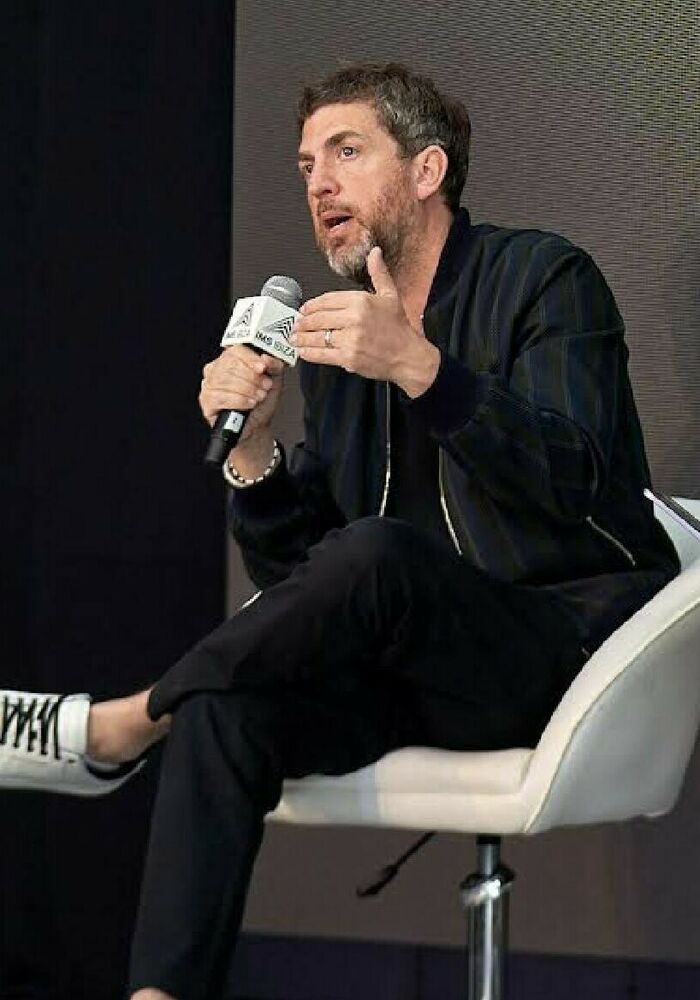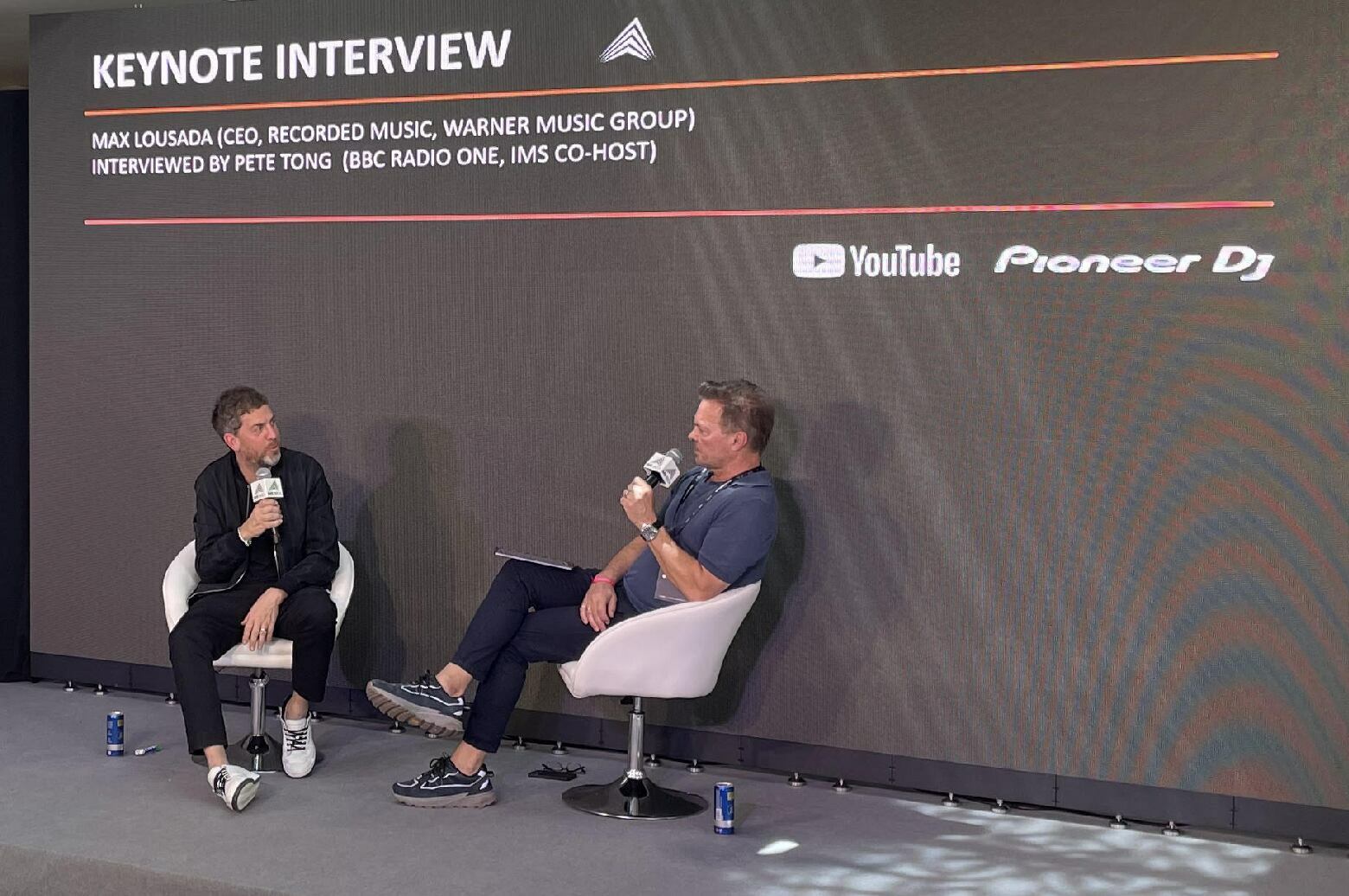Max Lousada, CEO of recorded music at Warner Music Group, has spoken out on a range of topics shaping the music industry as we know it, from the power of TikTok, the art of A&R, what AI means for the future of the business, and the challenges that keep him awake at night.
Lousada discussed all of these subjects and more at the 2023 International Music Summit (IMS) in Ibiza as part of an in-depth keynote in which he was interviewed by dance music icon and BBC Radio 1 DJ Pete Tong.
The packed-out session saw Tong quiz Lousada, who became the first major label CEO to speak at IMS, on the biggest challenges he faces in today’s market, from breaking new artists, understanding data, and how best to harness social media and new technologies such as AI.
The pair also discussed the role of radio and specialist presenters in 2023, the runaway success of the likes of Fred Again and David Guetta, as well as the company’s commitment to the dance and electronic music scene and the success of its Spinnin’ Records imprint, which was acquired by the firm in 2017.
Headliner had a front row seat for what proved to be one of the biggest draws of the week in Ibiza, and hereby presents some of the highlights.
BIGGEST CHALLENGES & BREAKING NEW ARTISTS
What’s keeping you awake at night? What are the biggest challenges you face as Warner CEO?
A lot keeps me up at night. At the moment there is a big conversation about value and impact and understanding cause and effect. What I mean by that is, what is artist development in 2023 and 2024? What really drives a hit? What does global mean? And in a world that is full of such passive consumption, how do we keep making people feel and memorise around our artists? So, what keeps me awake at night is trying to establish and really diagnose what the artists’ needs are, what the capabilities of the organisation both locally and globally are going to have to be, and making sure we can measure that so the relationship with the artists is equitable. At every given moment I feel like we are creating brilliant campaigns and signing amazing artists and delivering on the promise of why you do a record deal in the first place. And at every given moment I feel we still have a lot of learning to do about how all these different horizons and ways of consuming and fandom are changing.
How hard is to break an artist today? Will there ever be global superstars like Coldplay, Dua Lipa, Ed Sheeran, and David Guetta again?
Yes, of course. We all took the playlisting drug. We all got amazed by this programmatic, amazing streaming world, but for me we sleepwalked into the power of playlisting as a campaign, and we are starting to realise that we are going into a different period of time, where we have to focus on the active and the superfan and communities, rather than look at an opaque audience and the number of streams as having the same value. I’m thinking we're going back to the future. Back to a place of storytelling, a place of curating music because there is so much out there - 100,000 pieces of music hit the platforms every day. And while that is intimidating – it’s certainly intimidating for a major music company – the reality is it’s a massive opportunity. And from a Warner perspective, the campaigns and the artists that are working are using these new mediums, such as short form content, community build, direct messaging, and D to C, alongside the traditional streaming amplification to really build an immersive relationship with fans.
And we lost it for a minute. I used to turn up at marketing meetings and the first half an hour was a playlisting strategy, and it was like, where is the idea? Where is the story of what the artist actually wants to say? I feel the industry got overweighted on promotion and underweighted in creativity and storytelling, and I think we are going back to that place. It’s what fans want. Fans want to engage and dance to stuff and interact with all of our music in a different way and that is something we should continuously celebrate.




